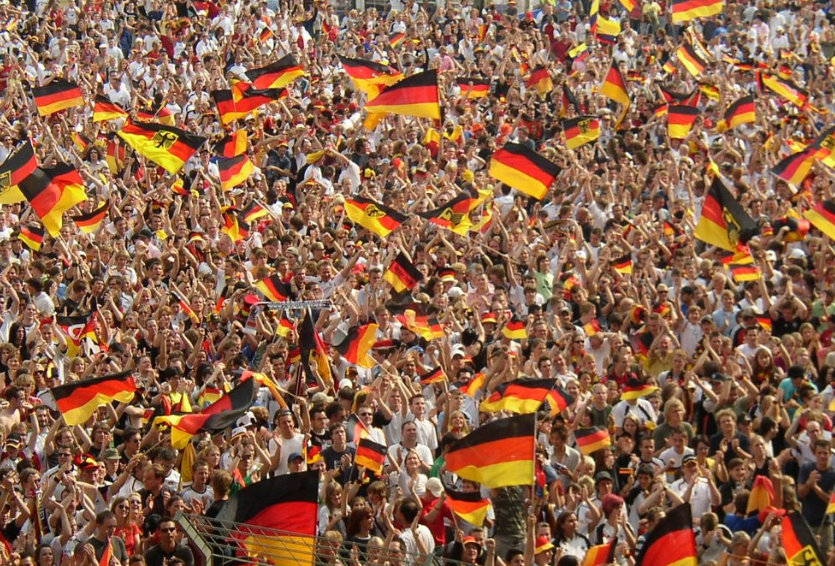Let’s talk about Armenia National Festival. Armenia is known for its rich cultural heritage and traditional festivals. One such festival celebrated by Armenians all over the world is Vardavar. Also known as the “Water Festival,” Vardavar is a unique celebration that has been a part of Armenian culture for centuries. In this article, we will delve into the history, customs, and significance of Vardavar, and explore how this festival has evolved over the years.
Vardavar, also known as the “Transfiguration of Our Lord Jesus Christ,” is a festival that dates back to pre-Christian times. It is a celebration of the Armenian goddess Astghik, who was the goddess of love, beauty, and water. The festival is celebrated 98 days after Easter, which usually falls in late June or early July.
History of Armenia National Festival
Vardavar has its roots in pagan times, but it has evolved over the centuries. The festival was originally celebrated in honor of Astghik, the goddess of love and water. In ancient times, people would gather near springs, rivers, and lakes and throw water at each other as a way of purifying their bodies and souls. It was also believed that the water had healing properties and could cure illnesses.
After Armenia became Christian in the 4th century, Vardavar took on a new meaning. It became a celebration of the Transfiguration of Jesus Christ, which is a significant event in the Christian calendar. However, the festival’s association with water remained, and people continued to throw water at each other as a way of commemorating the baptism of Jesus Christ.
Customs and Traditions of Vardavar
Vardavar is a joyous festival that is marked by several customs and traditions. The most prominent of these is the throwing of water. People of all ages take to the streets armed with buckets, water guns, and other water-related paraphernalia, and drench each other in water. The water is usually cold, and the festival takes place during the hot summer months, so it is a refreshing and invigorating experience.
In addition to the water-throwing, there are several other customs associated with Vardavar. One of these is the decoration of houses with flowers and greenery. It is also customary to wear new clothes on Vardavar, and many people dress up in traditional Armenian costumes.
Significance of Armenia National Festival
Vardavar is a festival that has great significance for Armenians. It is a celebration of life, renewal, and purification. The water-throwing symbolizes the washing away of sins and impurities, and the renewal of the body and soul. It is also a way of connecting with nature and honoring the goddess Astghik, who was believed to have control over water and fertility.
Celebrations in Armenia National Festival
Vardavar is a national holiday in Armenia, and it is celebrated with great enthusiasm throughout the country. The capital city of Yerevan is particularly lively during Vardavar, with people taking to the streets to participate in the water-throwing and other festivities. The city’s central square, Republic Square, is transformed into a sea of people and water during Vardavar, with music, food, and dancing adding to the festive atmosphere.
In addition to the celebrations in Yerevan, Vardavar is also celebrated in other parts of Armenia. The city of Gyumri, for example, is known for its traditional Vardavar celebrations, which involve parades, dancing, and music.
Vardavar Food
Food is an important part of Vardavar celebrations, and Armenians prepare a variety of traditional dishes for the occasion. One popular dish is harissa, a porridge-like dish made with chicken, wheat, and spices. Another traditional dish is khorovats, which is grilled meat, usually lamb or beef, seasoned with salt, pepper, and other spices. For dessert, Armenians often serve sweet pastries such as gata, which is a type of sweet bread.
Vardavar Music
Music is another integral part of Vardavar celebrations. Traditional Armenian music, with its distinct melodies and rhythms, can be heard throughout the festival. Many people also play modern Armenian music, which combines traditional elements with contemporary beats.
Vardavar Dance
Dance is also an important part of Vardavar. Traditional Armenian dances, such as the shalakho and the kochari, are performed during the festival. These dances are usually performed in groups, with participants holding hands and moving in a circular motion.
Vardavar Games
Games are a popular part of Vardavar celebrations, especially for children. One popular game is tug of war, where two teams pull on opposite ends of a rope. Another popular game is egg-and-spoon race, where participants balance an egg on a spoon and race to the finish line.
Vardavar and Religion
While Vardavar is now a secular festival, it has its roots in pagan and Christian traditions. The water-throwing, for example, has its origins in pagan rituals that were performed to honor the goddess Astghik. After Armenia became Christian, the festival was given a new meaning and was associated with the Transfiguration of Jesus Christ.
Modern-Day Vardavar
While Vardavar has changed over the centuries, it remains an important part of Armenian culture. In recent years, the festival has become more inclusive, with people of all ages and backgrounds participating in the celebrations. The water-throwing, in particular, has become more widespread, with people using everything from water guns to buckets to douse each other in water.
Armenia National Festival Around the World
Vardavar is not just celebrated in Armenia. Armenians all over the world also celebrate the festival, often in their own unique ways. In Los Angeles, for example, the festival is celebrated with a parade and street fair. In Moscow, Armenians gather in the city’s parks to participate in the water-throwing.
How to Celebrate Vardavar
If you want to celebrate Vardavar, there are several ways to do so. You can join in the festivities in Armenia, or participate in celebrations in your local Armenian community. Alternatively, you can celebrate Vardavar on your own by gathering with friends and family, decorating your house with flowers and greenery, and throwing water at each other.
Frequently Asked Questions
- When is Vardavar celebrated?
Vardavar is celebrated 98 days after Easter, which usually falls in late June or early July.
- What is the significance of Vardavar?
Vardavar is a celebration of water and renewal, and is associated with the Transfiguration of Jesus Christ.
- What are some traditional Vardavar foods?
Some traditional Vardavar foods include harissa, khorovats, and gata.
- What is the origin of the water-throwing tradition?
The water-throwing tradition has its origins in pagan rituals that were performed to honor the goddess Astghik.
- Is Vardavar only celebrated in Armenia?
No, Vardavar is also celebrated by Armenians all over the world.
Conclusion
Vardavar is a colorful and lively festival that celebrates water and renewal. Its roots may be pagan, but it has taken on new meanings over the centuries, becoming associated with the Christian Transfiguration. Today, Vardavar is a secular festival that is celebrated by Armenians all over the world, and has become more inclusive and diverse over time. Whether you’re in Armenia or elsewhere, there are many ways to celebrate Vardavar and enjoy the festive atmosphere, traditional foods, music, dance, and water-throwing.
References
- “Vardavar.” Visit Armenia. https://visitarmenia.org/vardavar/.
- “Vardavar: The Festival of Water.” Armenia Travel. https://www.armenia.travel/en/vardavar-the-festival-of-water.
- “Vardavar: The Armenian Festival of Water.” The Culture Trip. https://theculturetrip.com/europe/armenia/articles/vardavar-the-armenian-festival-of-water/.

